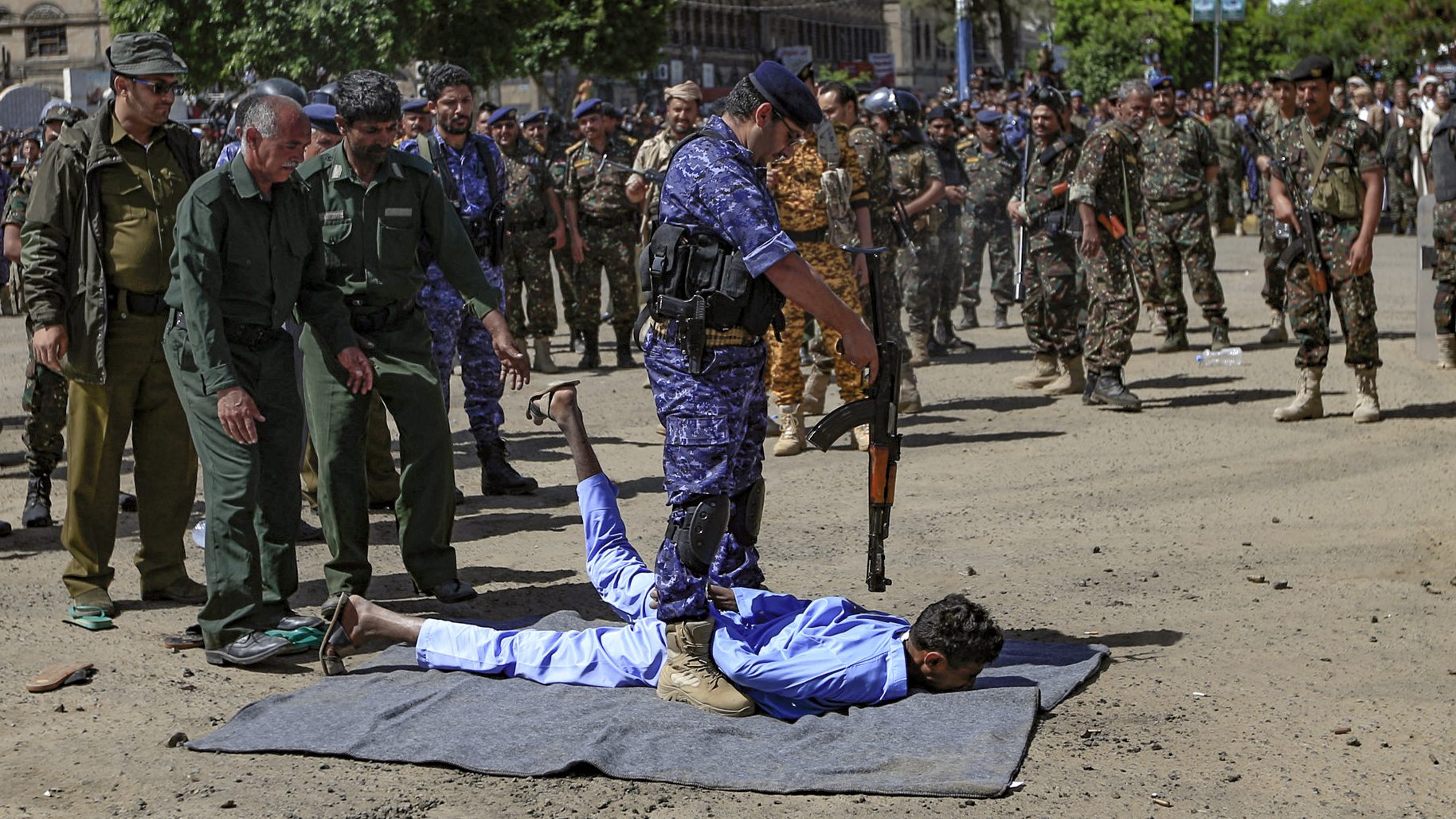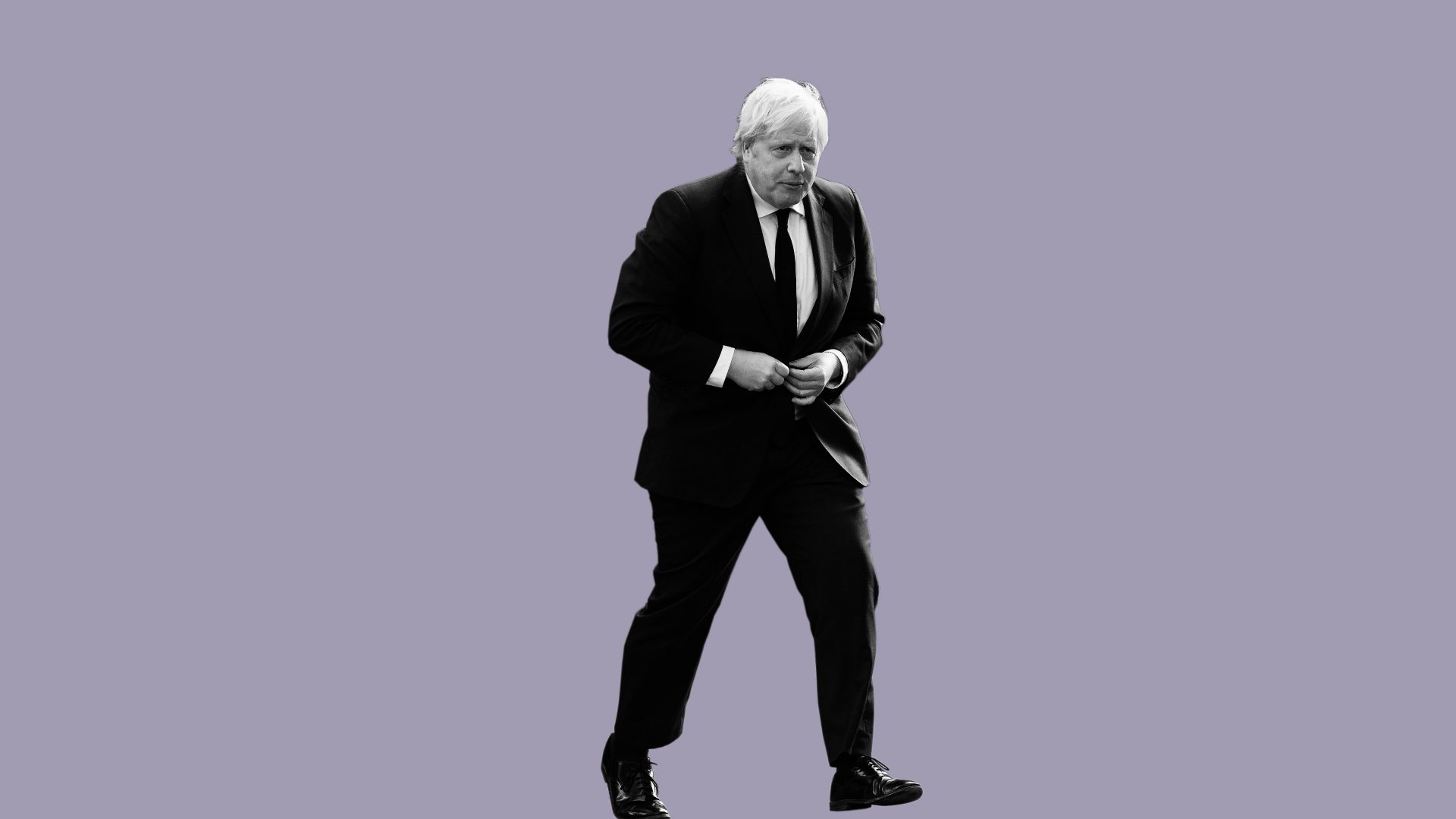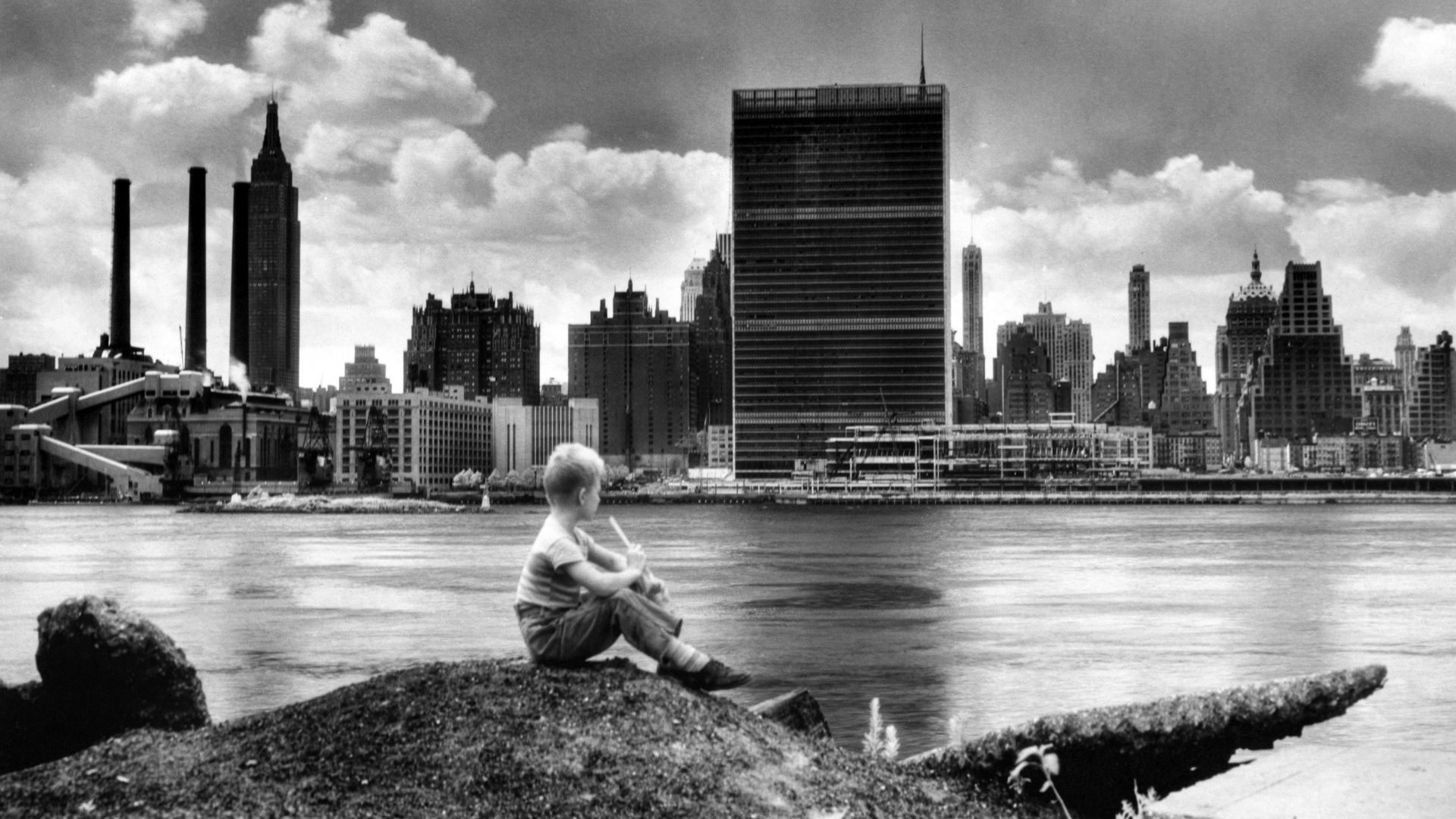Back in mid-January, just weeks before Vladimir Putin’s invasion of Ukraine began, Yemen’s Houthi rebels launched drone and missile attacks on Abu Dhabi, the capital of the United Arab Emirates. The Iranian-backed Houthis killed three Indian workers and wounded several others. The Saudi-led coalition then retaliated quickly by targeting Sana’a, the Yemeni capital, killing 20 civilians.
Days later, the Saudis carried out airstrikes on a prison in Yemen, killing more than 80 people and wounding 260 more. UAE officials said they were responding to what they labelled a “sinister criminal escalation”.
“From what I hear… there are many bodies still at the scene of the airstrike, many missing people,” said Ahmed Mahat, the Médecins Sans Frontières head of mission in Yemen. “It is impossible to know how many people have been killed. It seems to have been a horrific act of violence.”
Western governments, outraged by what is happening in Ukraine – not least in Bucha, where mass graves have been discovered of civilian victims of Russian atrocities – are now facing troubling questions about their response to the world’s other conflicts, largely in the Middle East, where what is happening in the besieged port city of Mariupol is more or less routine. Car bombs, airstrikes and shelling have become part of daily life in Yemen in recent years.
January was a record-breaking month for Yemeni civilian casualties. The country’s impoverished economy is in ruins. Millions of children lack access to clean water and healthcare. The UN has estimated the war had killed 377,000 people by the end of 2021, both directly and indirectly through hunger and disease.
Saudi-led coalition attacks are increasing. Since last October, civilian casualty numbers and bombing rates have reversed the previous downward trend, escalating to a rate not seen since 2018, taking the monthly average of civilian casualties in bombings since October 2021 to 141. Yemen is witnessing the most sustained period of heavy bombing (at least 200 air raids a month) in four years, according to the Yemen Data Project.
It is complicated to work out why what is happening in Ukraine matters so much more to the West. Part of the answer is its geographical proximity, thus the challenge facing Nato in the greatest crisis since the end of the cold war. Economic interests are obviously a factor in an increasingly globalised world. Europe’s dependence on Russian gas is another problem.
Middle Eastern states’ changing interests have also influenced regional reactions to Putin’s “special military operation” against his neighbour. That’s why the UAE abstained when the rest of the UN Security Council (except China and India) voted to condemn Russia. That was because of the Yemen conflict and the US failure to take January’s Houthi attack seriously enough.
In the big picture, the Joe Biden administration in the US is widely perceived across the Middle East and North Africa (MENA) as having downgraded its interest in the region following Donald Trump’s disruptive four years in the White House. Trump’s recognition of Jerusalem as Israel’s capital in 2017; the abandonment of the Iranian nuclear agreement in 2018 as well as the 2020 Abraham Accords between Israel, the UAE and Bahrain were all his doing.
Biden, following Trump and Barack Obama, thinks it is right to focus on China and its growing global ambitions, including the aspiration to invade and annex Taiwan to the People’s Republic. Thus the intense international attention focused on the US president’s call with his Beijing opposite number, Xi Jinping, about Russia and his warning not to supply Putin with military or financial aid last month.
Syria is also playing a role in reactions to the Ukraine crisis. Bashar al-Assad is the only MENA leader to have voted with Russia in the UN General Assembly – along with Belarus, Eritrea and North Korea. That’s because Putin has supported Assad since the 2011 Arab Spring uprising against him and, from September 2015, deployed troops and aircraft to support Damascus and reinforce his control.
In the years since then there have been many examples of Russian attacks on civilian sites – hospitals, schools, bakeries – all of which met weak responses from western leaders and drew little attention from war crimes prosecutors.
Obama’s failure to use his “red line” threat if Syria used chemical weapons undermined America’s global credibility. Assad is also backed by Iran, which is another key player. Tehran has sent its Islamic Revolutionary Guards Corps (IRGC) to Syria and is using Lebanon’s Hezbollah to pursue its own interests, as well as Shia groups in Iraq and the Houthis.
On March 24, Assad went on his first trip to Abu Dhabi since 2011 and met Sheikh Mohammed bin Rashid, the UAE’s de facto ruler. They discussed expanding bilateral relations. The visit was the clearest sign yet that normalisation with Syria’s dictator is advancing across MENA. The big question now is who will follow the Emiratis. (Maybe the Saudis, whose intelligence chief visited Damascus last May?) Both Saudi and Emirati leaders have been “unavailable” to talk to Biden in the last few days.
Washington said it was “profoundly disappointed and troubled” by this attempt to legitimise Assad, who remains responsible for the death and suffering of countless Syrians, the displacement of more than half of the country’s pre-war population and the arbitrary detention and disappearance of more than 150,000 men, women and children.
Iran could also benefit from the Ukraine crisis by weaponising its energy resources (it has the secondlargest gas reserves behind Russia and the fourth-largest oil reserves behind Venezuela, Saudi Arabia and Canada) as an alternative source for Europe.
That may also affect the outcome of attempts to revive the 2015 nuclear agreement. The release of Iranian- British dual nationals Nazanin Zaghari- Ratcliffe and Anoosheh Ashoori in return for the payment by the UK of a decades-long debt may have been a positive signal from Tehran.
Opponents of a renewed nuclear deal were alarmed recently when Washington was reported to be considering removing the IRGC from America’s list of state terrorist organisations (imposed by Trump as part of his “maximum pressure” campaign) in order to signal willingness to Tehran about a return to the original agreement.
And then there is the uniquely toxic issue of Israel and Palestine. On March 20 the Ukrainian president, Volodymyr Zelensky, who is Jewish, addressed Israel’s parliament on Zoom, invoked the Holocaust and repeatedly used the term “final solution”. Zelensky noted that February 24 was the date on which the Nazi party was founded in Germany in 1920.
The reason for his scathing speech is that Israel has refused to provide weapons to Ukraine and has not chosen to impose strong sanctions. It has echoed China (along with Turkey, Egypt and Jordan) by offering to mediate between Moscow and Kyiv. Israel has been seeking to avoid antagonising Russia, because of its presence in Syria, where Israel regularly carries out military action against Iran-linked groups, and is keen to preserve its “deconfliction mechanism” with the Kremlin.
On the other side of the fence, Palestinians are angered by the double standards of the world in responding so fast and with such unity to Russia compared with Israel’s 54-year rule of the territories occupied since 1967. Some have even referred to 1948, when Israel was created following the end of the British Mandate – reflecting the increasingly perceived impossibility of achieving a two-state solution.
Food supplies are playing a key role in MENA reactions to Ukraine. Tunisia, Libya and Egypt are all dependent on Russian and Ukrainian wheat, and are hedging their bets. Even countries that are not may see a rise in food prices due to an increase in fuel and therefore transport costs, a reduced supply of fertilisers, and shrinking global agricultural productivity and supply.
Energy is not just a factor in the Middle East, but also for western countries, signalling that oil is more important than state repression. Boris Johnson’s visit to Saudi Arabia was condemned by human rights groups not only because of Crown Prince Mohammed bin Salman’s involvement in the murder of the journalist Jamal Khashoggi, but because of 80 other recent executions in the conservative kingdom. The Labour leader, Sir Keir Starmer, accused the UK prime minister of “going cap in hand from dictator to dictator”.
Saudi Arabia, with 2m barrels per day spare, and the UAE, with 1.1m bpd, are the only two leading oil producers with immediate capacity to offset a Russian shortfall. Qatar is the biggest gas producer in the region and the third in the world after Russia and Iran.
Beyond MENA, Afghanistan remains high on the global agenda, with the UN warning in February that it is facing a disastrous humanitarian crisis since the Taliban takeover in August 2021 following the chaotic US-led international withdrawal. And Afghans are understandably frustrated by the West’s reaction to their plight or that of other non-Europeans compared with those white and Christian Ukrainians who have had to flee their homes because of Putin’s invasion.
In short, both western and Middle Eastern states are pursuing their own strategic and economic interests in a rapidly changing world. In these uncertain and disturbing times, with the international community rightly focused on defending Ukraine from Russia’s unprovoked aggression while trying to avoid a third world war, there is still an awful lot else to worry about.
Ian Black is a visiting senior fellow at the Middle East Centre, the LSE, and a former Middle East editor, European editor and diplomatic editor of the Guardian. His most recent book is Enemies and Neighbours: Arabs and Jews in Palestine and Israel, 1917-2017.



